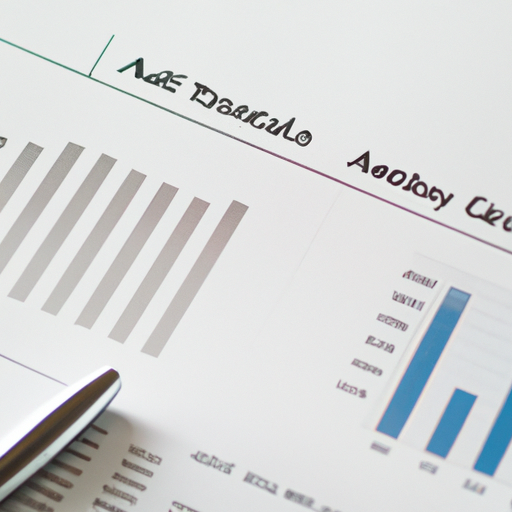
In the world of financial reporting, the bilan comptable plays a crucial role in providing a snapshot of a company's financial health. This balance sheet, as it is known in English, is a key tool for investors, creditors, and stakeholders to assess a business's assets, liabilities, and equity at a specific point in time. In this article, we will explore the importance of the bilan comptable in financial reporting, how to prepare and analyze it for your business, and the key components that can have a significant impact on your financial performance. Understanding the ins and outs of the bilan comptable is essential for making informed decisions and ensuring the long-term success of your company.
- 1. Understanding the Importance of Bilan Comptable in Financial Reporting
- 2. How to Prepare and Analyze a Bilan Comptable for Your Business
- 3. Key Components of a Bilan Comptable and Their Impact on Financial Performance
1. Understanding the Importance of Bilan Comptable in Financial Reporting
Understanding the importance of bilan comptable in financial reporting is crucial for any business or organization. The bilan comptable, also known as a balance sheet, provides a snapshot of a company's financial position at a specific point in time. It presents a summary of a company's assets, liabilities, and equity, allowing stakeholders to assess the financial health and stability of the business.
The bilan comptable is a key component of financial reporting as it provides valuable information for decision-making purposes. It helps investors, creditors, and other interested parties to evaluate the company's financial performance and make informed decisions about investing or lending money to the business. Additionally, the bilan comptable is essential for regulatory compliance and tax reporting purposes.
By analyzing the information presented in the bilan comptable, stakeholders can assess the company's liquidity, solvency, and overall financial stability. This allows them to identify potential risks and opportunities, and take appropriate actions to ensure the long-term success of the business.
In conclusion, understanding the importance of bilan comptable in financial reporting is essential for any business looking to effectively manage its finances and communicate its financial position to stakeholders. By regularly preparing and analyzing the bilan comptable, companies can make informed decisions and demonstrate transparency and accountability in their financial reporting practices.
2. How to Prepare and Analyze a Bilan Comptable for Your Business
To prepare and analyze a bilan comptable for your business, you will need to gather all the necessary financial information from your company's accounting records. This includes your balance sheet, income statement, and cash flow statement.
Start by organizing your assets, liabilities, and equity in the balance sheet. Assets should be listed in order of liquidity, from current assets like cash and accounts receivable to long-term assets like property and equipment. Liabilities should be categorized as current liabilities (short-term debts) and long-term liabilities (long-term debts). Equity represents the owner's stake in the business.
Next, calculate key financial ratios to analyze your company's financial health. These ratios can help you assess your liquidity, profitability, and solvency. For example, you can calculate the current ratio by dividing current assets by current liabilities to determine your ability to cover short-term debts.
Additionally, compare your bilan comptable to previous periods or industry benchmarks to identify trends and potential areas for improvement. Look for any discrepancies or red flags that may indicate financial problems or inefficiencies within your business.
Overall, preparing and analyzing a bilan comptable is essential for understanding your company's financial position and making informed decisions for future growth and success. By regularly reviewing and updating your financial statements, you can stay on top of your business's financial performance and make strategic adjustments as needed.
3. Key Components of a Bilan Comptable and Their Impact on Financial Performance
A bilan comptable, also known as a balance sheet, is a financial statement that provides a snapshot of a company's financial position at a specific point in time. It is a crucial tool for investors, creditors, and other stakeholders to assess the financial health and performance of a business. The bilan comptable consists of three key components: assets, liabilities, and equity.
Assets represent the resources owned by the company, such as cash, inventory, equipment, and investments. These assets are essential for the company's operations and generate revenue. The value of assets on the bilan comptable can impact the company's financial performance in several ways. For example, a higher value of assets indicates that the company has more resources to generate revenue and cover its liabilities. On the other hand, a decline in the value of assets may signal financial distress and potential liquidity issues.
Liabilities, on the other hand, represent the company's obligations to creditors and other external parties. This includes loans, accounts payable, and other debts that the company owes. The amount of liabilities on the bilan comptable can impact the company's financial performance by affecting its debt-to-equity ratio and leverage. A high level of liabilities may indicate financial risk and reduce the company's ability to invest in growth opportunities.
Equity represents the company's net worth, calculated as assets minus liabilities. It reflects the owners' stake in the business and is a measure of the company's financial health. Equity on the bilan comptable can impact financial performance by providing a cushion against losses and supporting growth through retained earnings. A strong equity position indicates financial stability and may attract investors and creditors.
In conclusion, the key components of a bilan comptable – assets, liabilities, and equity – play a crucial role in assessing a company's financial performance. By analyzing these components, stakeholders can gain insights into the company's financial health, liquidity, and solvency. It is essential for businesses to regularly review and analyze their bilan comptable to make informed decisions and drive sustainable growth.